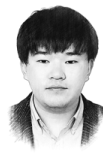Cultural industry can better tell China story

Civilizations today are more interconnected than ever before, the destiny of the people around the world is more closely linked and the international community agrees that civilizations should be inclusive and jointly promote development. Yet the "clash of civilizations" theory, which claims "principal conflicts of global politics will occur between nations and groups of different civilizations", had been in vogue until recently.
With the end of the Cold War, international relations are no longer confined to the study and interpretation of a single event or delimited by ideology, and more attention is being paid to global trends. While new ideas and theories are emerging to guide the world in the right direction, certain people are working their fingers to the bone to label some countries as opponents and rivals of the United States, which, incidentally, seeks unipolar domination.
It is in this context that Harvard political scientist Samuel Huntington developed the "clash of civilizations" theory, which has three main characteristic features. First, in the new era, the leading cause of human disputes and conflicts will be the difference between civilizations and cultures. Second, the differences between civilizations and cultures are not only real but also fundamental. And third, economic globalization and regionalization have prompted civilizations to play a greater role in international relations and increased the possibility of conflicts among civilizations.
The different views on inter-civilization relations reflect Huntington's personal global view and civilizational views. According to Huntington, the non-Western challenge to the West at the peak of power is growing, and the probability of a "clash of civilizations" has greatly increased, concluding that the major global conflicts in the future will be between countries and groups with different civilizational backgrounds. "In this new world the most pervasive, important, and dangerous conflicts will not be between social classes, rich and poor, or other economically defined groups, but between peoples belonging to different cultural entities," Huntington claimed.
Based on a fallacious assumption, Huntington emphasized that the main line of political conflicts in the post-Cold War world would be "clash of civilizations", a claim that is far removed from constructive theory and policy practice.
The introduction of civilization as an important variable to the study of international relations was originally an academic matter; it has helped deepen and broaden the international political theory. However, there is no basis for elevating "civilization" to a position more important than national and economic interests. History shows the "clash of civilizations" theory is wrong, and it is foolish to assume one's own civilization is superior to others.
The international academic community has made no secret of its doubts over the "clash of civilizations" theory. Academics have questioned Huntington's one-sided emphasis on the conflict and antagonism between different societies and civilizations.
For example, how do we evaluate the roles of economic globalization and modernization of communication in increasing exchanges and integrating interests among countries? Should a country face the important common global challenges alone or should all countries join hands to cope with them?
Neither Huntington nor the proponents of his theory have provided convincing answers to such questions.
Since Huntington firmly holds the Western position, his theory is rooted in Western-centrism and dictated by the hegemonic power politics and zero-sum game thinking of some people in the US and other Western countries. More important, it has been made part of the strategic scheme of containing the development of emerging economies and developing countries such as China, and making non-Western countries weak.
There are more than 200 countries and regions, diversified ethnic groups and many religions in the world. These countries have different histories, cultures and social systems, which are the inherent features of a civilization. There can be no civilization without diversity, and diversity will continue to exist for as long as humans exist.
There is a need for countries to follow the global development trends, promote civilizational concepts that emphasize equality, mutual learning, dialogue, and inclusiveness. They need to respect each other and treat each other as equals, accept the civilizational diversities, respect the differences in political systems, and draw on each other's strengths to explore new grounds in development, so as to contribute to the progress of civilization.
In March 2023, China proposed the Global Civilization Initiative, stressing that we respect the diversity of civilizations and the common values of humanity, understand the importance of inheritance and innovation of civilizations, and promote people-to-people exchanges and cooperation globally.
The GCI has contributed Chinese wisdom to promote inclusive coexistence, carry out exchanges and facilitate mutual learning among different civilizations. The absurdity of the "clash of civilizations" theory demonstrates the great significance of the GCI and the correctness of its theoretical basis.
Therefore, all countries should promote global peace and development, strengthen civilizations, boost international exchanges and cooperation, explore innovative measures to establish a global network of dialogue and cooperation among civilizations, foster mutual understanding and amity among peoples, break down the spiritual barriers that hinder human exchanges, and work together to ensure the harmonious coexistence of different civilizations and the continuous progress of civilizations toward a bright future.

Yu Jiang is the full-time deputy secretary-general of the Xi Jinping Thought on Diplomacy Studies Center.

Jia Ding is an assistant research fellow at the Xi Jinping Thought on Diplomacy Studies Center.
The views don't necessarily reflect those of China Daily.

































